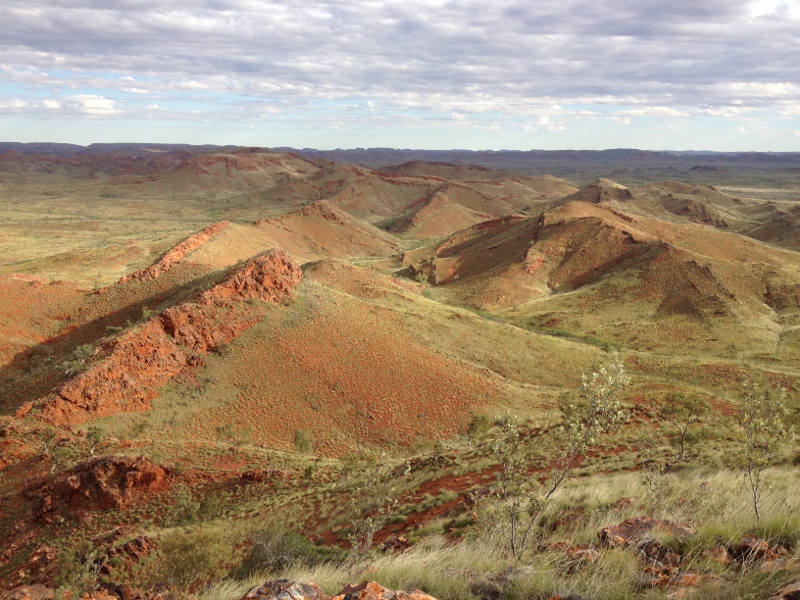
Giving weight to Darwin’s theory that life likely originated in a ‘warm little pond’ on land, Australian and New Zealand scientists have found the oldest evidence of life on land in ancient hot spring deposits in the Pilbara, West Australia.
The find, published in Nature Communications, sets back the record of life in hot springs by 3 billion years, meaning that “life was inhabiting the land much earlier than previously thought, by up to about 580 million years” according to lead researcher UNSW PhD candidate Tara Djokic.
We still haven’t pinpointed exactly where life started, but the most popular theories include the introduction from space by a meteor, or that life evolved in deep sea hydrothermal vents. But, as Professor Kathy Campbell from the Univerisity of Auckland who was involved in the study explained on Radio NZ: “this wasn’t life in the sea, this actually was the first life on land that’s ever been found. This opens up a big debate about where life may have come from in the first place”.
The discovery also has ramifications beyond Earth. Campbell told the NZ Herald “this work is also highly relevant to Mars exploration” because the Pilbara deposits are about the same age as Mars’ crust. She continued: “one of the key aims for Nasa’s 2020 Mars rover landing is the search for fossils in ancient volcanic hot springs, which we now know once existed on the martian surface.”
Local and international news outlets covered the discovery:
New Zealand media:
Radio NZ: Earlier life on land discovered in Australasian hot springs
NZ Herald: Oz, NZ scientists reveal oldest life on land
International media:
ABC Science: Early life on land may have thrived in 3.5bn-year-old Pilbara hot spring
Sydney Morning Herald: Oldest evidence of life on land discovered in Australia
Australian Geographic: Oldest evidence of life on land discovered in Western Australia
Independent: Oldest land-based fossils ever discovered suggest Charles Darwin was right about the origin of life
NPR: Australian Fossils Hint At Where To Search For Life On Mars